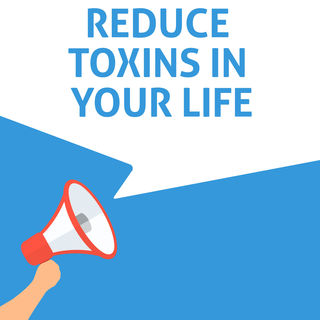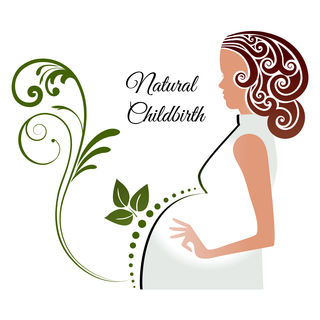Health
Why Are We So Obsessed with What's 'Natural'?
Obsessions with eliminating so-called 'toxins' can threaten our health
Posted June 6, 2017
In a 2015 interview with PBS Frontline, Jenny McCarthy discussed her views on the cause of her son’s seizures and other health problems as an “overload” of “toxins.” According to McCarthy, the “dysfunction” her son was caused by a “toxin overload with metals or viruses that triggered this autoimmune response.”

Putting aside for a moment the fact that what McCarthy is saying here is difficult to understand from a medical perspective (how does she know that these are “autoimmune” problems and what precisely is she referring to when she says “metals” and “viruses”?), the language around “toxins” should be familiar to everyone who’s ever spent time looking closely at the kinds of conversations that go on in institutions promoting “wellness” and alternative medicine. The term is especially prevalent in conversations questioning the safety of routine childhood vaccines, like the measles-mumps-rubella vaccine (MMR). Indeed, a controversial post by a doctor employed by the Cleveland Clinic Center for Health and Wellness effectively denouncing vaccines repeats versions of this word (“toxic,” “toxin,” etc.) in almost every sentence. According to this doctor, we “live in a toxic soup,” with “over 2,000 new chemicals being introduced annually.” And apparently, “Toxins accumulate in our fat cells if they are not eliminated and interrupt normal bodily functions.” According to him, these toxins are responsible for quite a few serious health problems, including “cancers, autoimmune diseases, neurologic problems like autism, ADHD, and Parkinson's disease, and the most prevalent chronic diseases like obesity, diabetes, and heart disease.”
When a term gets repeated with this kind of frequency, we need to ask a seemingly simple but in reality quite complex question: What does this term “toxin” even mean? And, perhaps more importantly, why are we so obsessed with it?
What do we mean when we say something is “natural”?
Alongside this fear of things that are supposedly “toxic” comes a simultaneous fixation on what’s been posed as the opposite - things that are supposedly “natural.” So it’s certainly requisite upon us to understand what this fixation is all about.
Fear of “toxins” and veneration of the “natural” are of course not phenomena restricted solely to vaccines. Love of what’s “natural” comes up in a variety of contexts. Some of the most prominent include a growing interest in what’s often referred to as “natural” childbirth and a demand for food that’s “natural.” In the case of childbirth, the “natural” movement consists of an insistence that pregnancy and childbirth have become “over-medicalized” and that the “chemicals” and procedures surrounding childbirth are somehow harmful to both mother and baby.

While it’s true that unnecessary C-sections are on the rise in the U.S. and that this trend is worrying because it’s often not an evidence-based decision, it can expose people to unnecessary risk, and it incurs cost on the healthcare system, C-sections exist for a reason. In many cases, when there are problems with delivery, C-sections save people’s lives. They are not some kind of sham imposed on mothers by the medical community. They are sometimes the only option and when used correctly they reduce rates of complications and death. Indeed, in the developing world, one of the biggest predictors of maternal mortality is whether or not the woman delivers in a health care center. While choosing to give birth under the supervision of a well-trained midwife is a personal decision that we do not wish to discuss at length here, this insistence that “natural” childbirth--which basically means giving birth without any plan in place to allow for medical intervention should delivery go wrong-- is somehow safer and superior to utilizing the life-saving technologies of modern medicine where necessary is clearly dangerous. We need only point to any number of deaths that have resulted from this insistence to know it is not a safe option. The growing conviction that consuming unpasteurized milk products is somehow “safer” because it’s “natural” is another fetishization of the seemingly “natural” world that absolutely puts people at risk of serious illness. Consuming unpasteurized products is among the leading causes of foodborne infectious diseases in the developed world.
The obsession with “toxic” and its alleged opposite “natural,” exists throughout the nutrition world. For a long time, the FDA has refused to regulate the term “natural” on food labels because it’s very difficult to define. In the strictest sense of the term, along the lines of what natural food junkies would want us to accept, literally nothing you currently eat would probably pass the test. If you lived on a farm and grew your own foods and simply sat outside and ate berries directly from the trees, then you might be said to be eating “all natural” food. Short of this lifestyle, which even some of the most adamant “natural food” junkies don’t seem to want to live, it’s very hard to understand what exactly is meant by “natural.” Are crops like corn, which are planted and cultivated, “natural”? If I grow some potatoes, bake them in the oven and pour some salt on them, isn’t that technically all natural too? And if eating “all natural” is the key to being healthy and living forever, then based on this reasoning, wouldn’t I be better off eating a diet made up exclusively of potato chips and French fries?
Of course we are being a bit facetious here. The point is that “natural” is not a scientific term. It’s a cultural concept that we can all vaguely agree has something to do with spontaneous processes that occur in the world regardless of human interference. But the reality is that this is a complex concept constructed out of a somewhat misguided sense that it’s possible to maintain things that are completely free of human interference. The fact is that almost everything we come into contact with has been “corrupted” by “man-made,” “non-natural” processes and influences and it’s increasingly difficult to make any sense of what’s meant by this venerated designation of “natural.” Which leads us to our next point – we are by no means the first generation of humans to be obsessed with what’s “natural.” In fact, this obsession goes back many centuries and is itself probably one of the most fundamental, most “natural” (if you’ll excuse the pun) components of human psychology.
Why are we so obsessed with what’s “natural”?
It turns out that we humans in the modern age are not as special as we think we are. Yes, technology has advanced tremendously and we’re certainly reaping the benefits of that in many spheres of life, including in science and health care, and also the downsides in the form of deaths from automobile accidents and climate change. But this isn’t the first time that rapid technological development has been accompanied by humanity’s resistance to progress and subsequent desire to return to a “simpler” time and place. Remember learning about the Industrial Revolution in school? Although nowadays we tend to take the invention of steam engines for granted (who cares about that when we have satellites and robots?), it was a pretty big deal a few centuries ago and it certainly represented a period of time in which technological progress was swift and sometimes unexpected.
And it turns out that some very famous poets, artists, and writers picked up on this rapid development and many of them responded by venerating nature in ways that should resonate with us today. One of those poets was William Wordsworth, who, among many things, wrote the lines “Nature never did betray / the heart that loved her.” It’s a beautiful sentiment. But if we think about it a bit more deeply and put it into the context of many other lines written by Wordsworth and his contemporaries, we not only have some beautiful poetry but also a group of people expressing dismay about the rapid development of technologies in their midst and subtly (or not-so-subtly in some cases) fighting against this by turning to wondrous, abstract Mother Nature.
Fear of man-made things is also part of classic human risk perception. As Paul Slovic, one of the fathers of modern risk perception theory, discovered, whether or not something is man-made is a major determiner of whether people fear it. For him, this partially explained our overwhelming fear of nuclear energy compared to minimal fear of other “natural” phenomena that, from a purely quantitative statistical perspective, actually pose more risk. We see this fear of the manmade come up in concerns about GMOs and vaccines, both of which many people call “unnatural” as part of their assessment of the dangers. In short, skewed risk perception also has a part to play in the movement toward the seemingly “natural” lifestyle.
There’s certainly nothing wrong with venerating nature, as many of our favorite poets and artists have done. And it is true that fruits and vegetables are probably better for you than heavily processed foods with tons of sugar. But the wholesale turn away from “man-made” in favor of “natural” is not scientific and it has a dark side - refusing life-saving vaccines, refusing medical intervention in a complicated delivery of a child, consuming unpasteurized milk. These choices put people in danger. It’s time we took a step back and gained a better understanding of the “all-natural” movement and its real impact on health decisions. We must approach this issue like anything else - informed by the best science we have but guided by a deeper understanding of and compassion for people and the beliefs they hold.




